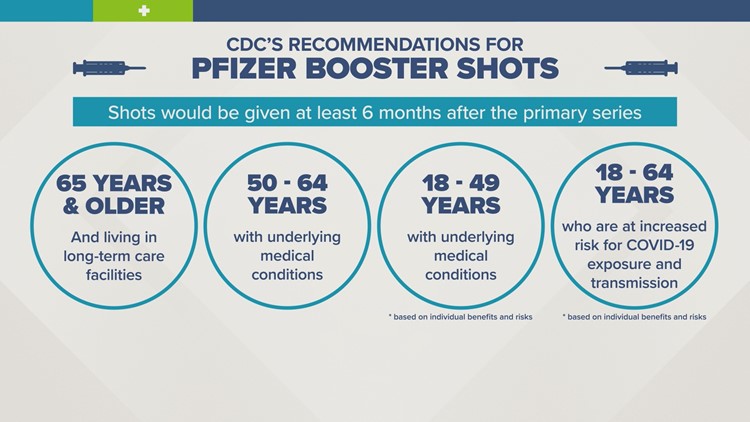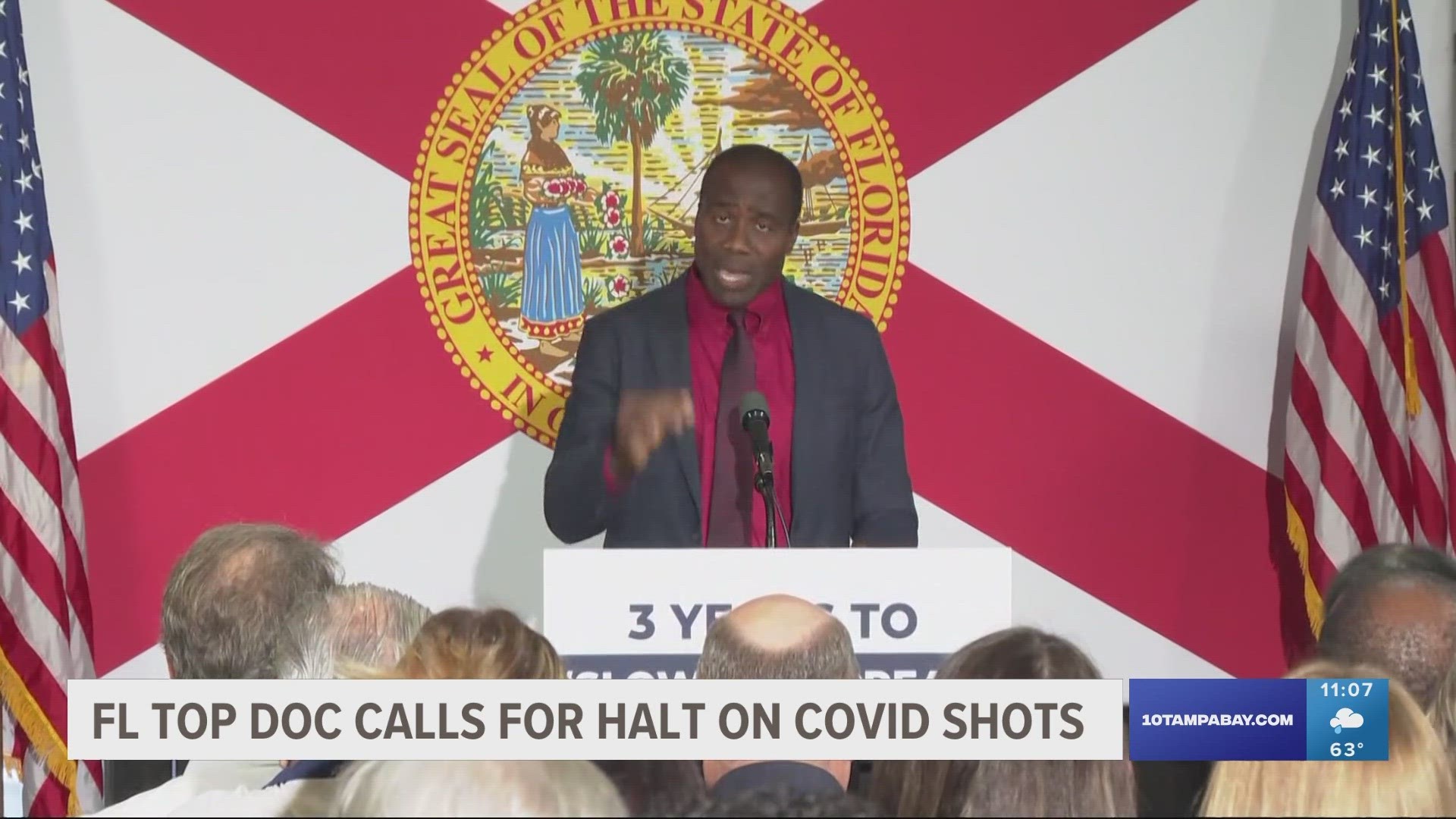ST. PETERSBURG, Fla. — There was an unusual twist in the booster rollout for the Pfizer vaccine after the director of the Centers for Disease Control and Prevention opted not to follow an independent panel's recommendations for a key category.
The Advisory Committee on Immunization Practices or ACIP met for two days this week to discuss the need for a booster shot in certain populations.
Ultimately, the CDC approved the booster for those who work in high-risk settings.
"We are tasked with analyzing complex, often imperfect data to make concrete recommendations that optimize health. In a pandemic, even with uncertainty, we must take actions that we anticipate will do the greatest good." Director Rochelle Walensky said.
Under the recommendation, the following groups can get a third shot of the Pfizer vaccine as long as, six months ago, they were originally vaccinated with the company's shot:
- Those who are 65 years and older.
- Those living in long-term care.
- Those who are ages 50 to 64 with underlying medical conditions.
- Those who are ages 18 to 49 with an underlying medical condition and it could benefit you.
- Those who are ages 18 to 64 with an increased risk of exposure because of your job.
We spoke with Dr. Jill Roberts at USF Health for a sharper insight on why doctors don't seem to be on the same page even within the ACIP.
“They were concerned that we were kind of jumping the gun with this because you have Moderna’s vaccine coming right behind this and also J & J, so maybe it made more sense to them to revisit it after you had more data on the other two vaccines, and then, you were actually able to recommend a booster with the exact shot that that individual received,” Dr. Roberts said.
That independent panel struggled with the fact many people under 65 don't need a booster. Dr. Roberts says if you're not in a high-risk group, you should feel good about your vaccine's protection — regardless of the brand.
“We just don’t have any endpoint suggesting that they don’t. Almost all the data to suggest that there could be some issue is just looking at waning antibody, but yet, that hasn’t correlated to anything clinically," Dr. Roberts said. "We haven’t seen hospitalizations. We haven’t seen deaths, and so I really don’t think that the people who have been vaccinated two times need to worry as long as they're healthy."
She says your body’s immunity is flexible though. While you might be healthy today, you might not be tomorrow, so that’s something to consider whether to get the booster.



